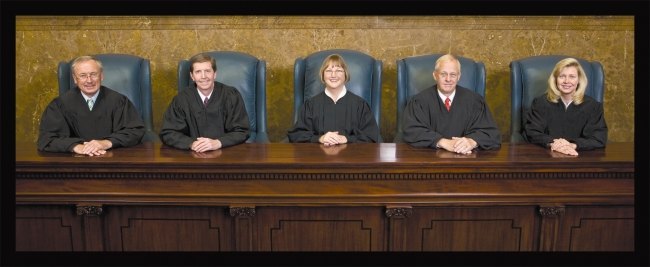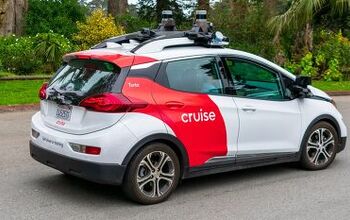Utah Supreme Court Allows DUI Stop On Vague 911 Call
Police can pull over a car that has committed no traffic violation based solely on vague accusations made in a 911 call, the Utah Supreme Court ruled Friday. The court considered the case of Jose Baltarcar Roybal whose live-in girlfriend, Annalee McCaine, called 911 after the pair had a fight August 8, 2005.
“The person that’s been living with me is an [expletive], and I want him the [expletive] out of here,” McCaine told the emergency operator. “He’s out putting stuff in his van… He’s going to be gone before you get here.”
McCaine said the pair had been drinking and that Roybal was about to drive off to the south. She provided a description of Roybal and his van. Ogden Police Sergeant Chat Ledford received the dispatch and spotted the van which he believed was driving “really, really slow” on 30th Street. Although Roybal had violated no traffic laws, Ledford believed the slow driving was a sure sign of intoxication and initiated a traffic stop.
The court considered at this point whether the officer’s actions were justified, as the Fourth Amendment prohibits unreasonable searches and seizures. The question turned on whether the officer had reasonable, articulable suspicion that criminal activity had taken place before he detained Roybal. A trial judge believed the Ledford acted correctly, but the court of appeals disagreed. A divided high court sided with Ledford.
“Looking to the totality of the circumstances in the instant case, we believe the 911 call was sufficient to provide the dispatcher with reasonable suspicion that Roybal was driving under the influence,” Justice Michael J. Wilkins wrote for the majority. “Irrespective of the fact that McCaine was Roybal’s live-in girlfriend, she was an identified citizen-informant who is presumptively reliable. Her personal involvement with Roybal, on its face, neither weakens, nor strengthens, that presumption.”
The majority concluded that the McCaine’s drunken call to 911 offered sufficient evidence that Roybal was also intoxicated and therefore could be stopped unless the officer saw evidence to the contrary.
“Once a reasonable suspicion is reached by the originator of the information — in this case, the dispatcher — the responding police officer is entitled to rely on the information unless the officer’s personal observations or interaction with the suspect present indications to the contrary,” Wilkins wrote. “That is to say, if the suspect’s actions are not inconsistent with the reasonable suspicion, the police officer may pursue the suspect and stop him or her immediately.”
Justice Ronald E. Nehring disagreed that the stop was justified because the police officer was not acting on solid information.
“I am troubled by the inference made by the majority,” Nehring explained. “The information from the dispatch established only that Mr. Roybal was in a white vehicle and that he had something to drink. People drinking together can individually consume various amounts of alcohol, or no alcohol at all, and it is erroneous to assume that the mere fact that people are together means they have had the same amount to drink. Our court of appeals has soundly rejected the implication that the state can impute unlawful activity to hyper-cautious driving.”
Nonetheless, the court reversed the appeals court decision and upheld Roybal’s conviction for driving under the influence of alcohol (DUI). A copy of the ruling is available in a 32k PDF file at the source link below.
Utah v. Roybal (Supreme Court, State of Utah, 5/14/2010)
[Courtesy: Thenewspaper.com]
More by The Newspaper
Latest Car Reviews
Read moreLatest Product Reviews
Read moreRecent Comments
- Lorenzo Yes, they can recover from the Ghosn-led corporate types who cheapened vehicles in the worst ways, including quality control. In the early to mid-1990s Nissan had efficient engines, and reliable drivetrains in well-assembled, fairly durable vehicles. They can do it again, but the Japanese government will have to help Nissan extricate itself from the "Alliance". It's too bad Japan didn't have a George Washington to warn about entangling alliances!
- Slavuta Nissan + profitability = cheap crap
- ToolGuy Why would they change the grille?
- Oberkanone Nissan proved it can skillfully put new frosting on an old cake with Frontier and Z. Yet, Nissan dealers are so broken they are not good at selling the Frontier. Z production is so minimal I've yet to see one. Could Nissan boost sales? Sure. I've heard Nissan plans to regain share at the low end of the market. Kicks, Versa and lower priced trims of their mainstream SUV's. I just don't see dealerships being motivated to support this effort. Nissan is just about as exciting and compelling as a CVT.
- ToolGuy Anyone who knows, is this the (preliminary) work of the Ford Skunk Works?


































Comments
Join the conversation
Although I too believe that the main factor driving (no pun intended) our drunk driving laws is revenue generation and not safety, I certainly have no desire to debate the issue. Current public sentiment towards people who break these laws borders on taking them out behind the courthouse and blowing their heads off with the closest service weapon. However, it is quite troubling to see so many citizens willfully giving away their constitutional rights if doing so will have a perceived detrimental effect on someone or something they don't like. You can count on lawmakers removing as many of our freedoms as we allow, always in the name of 'making us safer'. Now, if I'm in Utah, it's OK for a LEO to kick the door of my car open and arrest me with no evidence of a crime being committed other than an anonymous phone call to 911. I just don't understand how anyone thinks that's acceptable.
Observed very erratic unsafe driving on one of Omaha Nebraska's main thoroughfares a few years back. Not high speed but what I observed led me to believe a wreck was imminent. Pulled over and used a phone booth to inform 9-1-1. The female answering began a series of multiple questions after I gave location, direction of travel, plate number, and vehicle direction. Are you sure the vehicle is being driven erratically? What makes you think they have been drinking? Could you be mistaken? Were they speeding? Did they stop for no reason at all? Are they impeding traffic flow? I answered the questions, mentioning the many out-of-the-ordinary driving behaviors I had witnessed, all offering evidence the driver was impaired. On and on the questioning went and I could hear other dispatchers in the background answering their calls with "my" dispatcher not dispatching a cop..... I could hear keyboards being used in the background but I believe "my" dispatcher was doing nothing to send a cop..... just continued questioning. When some of the questions were repeated I soothing informed the female that I sincerely hoped if the impaired driver I was reporting harmed or killed another that I truly hope it was a close relative or family member of hers and with a hearty "screw you" I hung up the pay-phone and left.